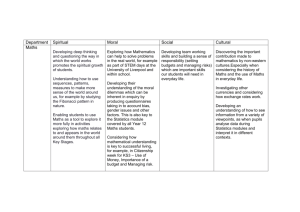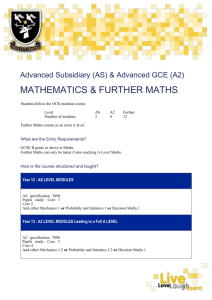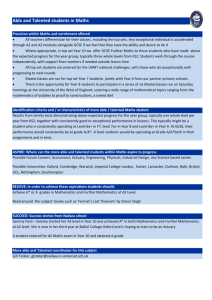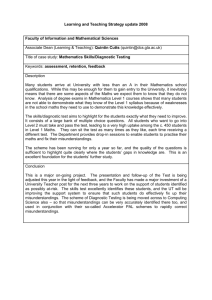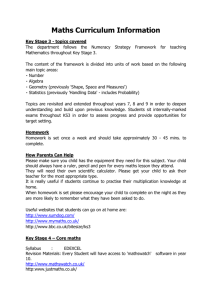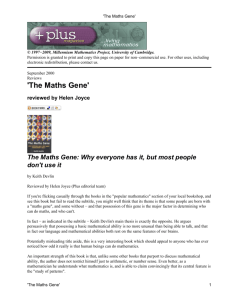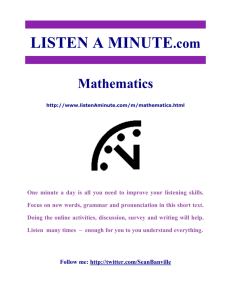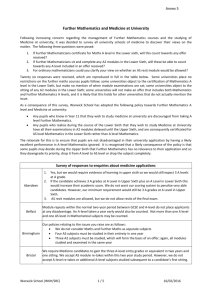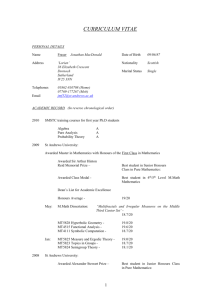Physics
advertisement
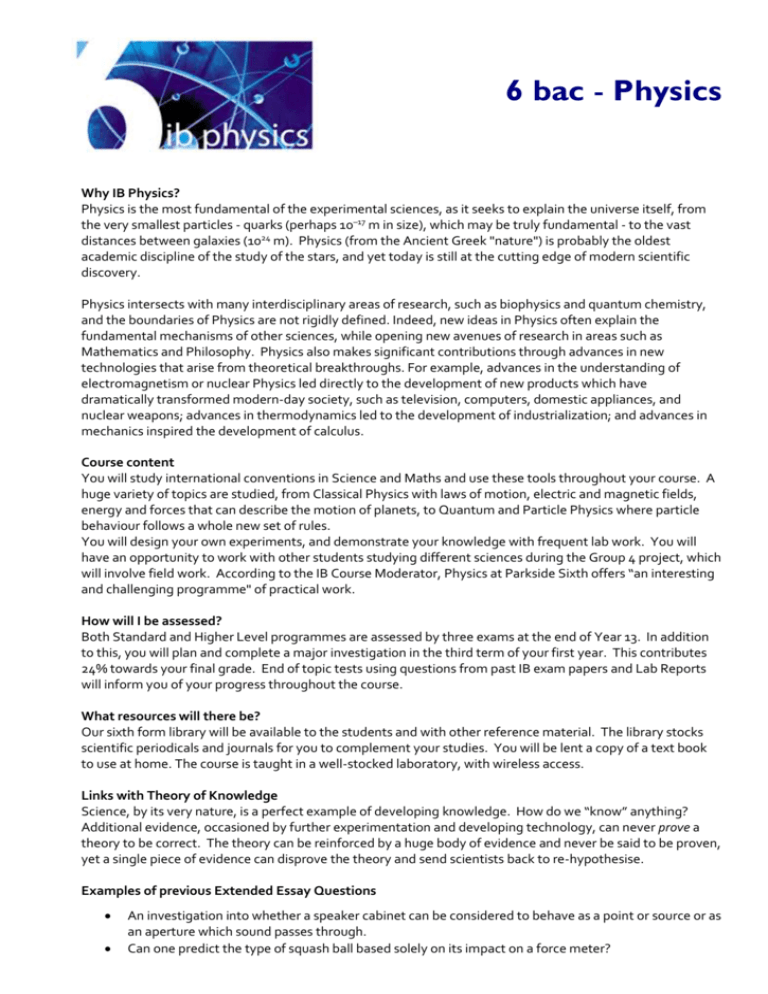
6 bac - Physics Why IB Physics? Physics is the most fundamental of the experimental sciences, as it seeks to explain the universe itself, from the very smallest particles - quarks (perhaps 10–17 m in size), which may be truly fundamental - to the vast distances between galaxies (1024 m). Physics (from the Ancient Greek "nature") is probably the oldest academic discipline of the study of the stars, and yet today is still at the cutting edge of modern scientific discovery. Physics intersects with many interdisciplinary areas of research, such as biophysics and quantum chemistry, and the boundaries of Physics are not rigidly defined. Indeed, new ideas in Physics often explain the fundamental mechanisms of other sciences, while opening new avenues of research in areas such as Mathematics and Philosophy. Physics also makes significant contributions through advances in new technologies that arise from theoretical breakthroughs. For example, advances in the understanding of electromagnetism or nuclear Physics led directly to the development of new products which have dramatically transformed modern-day society, such as television, computers, domestic appliances, and nuclear weapons; advances in thermodynamics led to the development of industrialization; and advances in mechanics inspired the development of calculus. Course content You will study international conventions in Science and Maths and use these tools throughout your course. A huge variety of topics are studied, from Classical Physics with laws of motion, electric and magnetic fields, energy and forces that can describe the motion of planets, to Quantum and Particle Physics where particle behaviour follows a whole new set of rules. You will design your own experiments, and demonstrate your knowledge with frequent lab work. You will have an opportunity to work with other students studying different sciences during the Group 4 project, which will involve field work. According to the IB Course Moderator, Physics at Parkside Sixth offers “an interesting and challenging programme" of practical work. How will I be assessed? Both Standard and Higher Level programmes are assessed by three exams at the end of Year 13. In addition to this, you will plan and complete a major investigation in the third term of your first year. This contributes 24% towards your final grade. End of topic tests using questions from past IB exam papers and Lab Reports will inform you of your progress throughout the course. What resources will there be? Our sixth form library will be available to the students and with other reference material. The library stocks scientific periodicals and journals for you to complement your studies. You will be lent a copy of a text book to use at home. The course is taught in a well-stocked laboratory, with wireless access. Links with Theory of Knowledge Science, by its very nature, is a perfect example of developing knowledge. How do we “know” anything? Additional evidence, occasioned by further experimentation and developing technology, can never prove a theory to be correct. The theory can be reinforced by a huge body of evidence and never be said to be proven, yet a single piece of evidence can disprove the theory and send scientists back to re-hypothesise. Examples of previous Extended Essay Questions An investigation into whether a speaker cabinet can be considered to behave as a point or source or as an aperture which sound passes through. Can one predict the type of squash ball based solely on its impact on a force meter? 6 bac - Physics 6 bac - Physics Possible CAS Opportunities There is scope for students to become actively engaged in running science clubs for younger students within the Parkside Federation and its family of partner primary schools. They could also offer support in the learning centre to help with home learning. Trips The Physics department has a fairly active trip schedule, with past excursions including the Institute of Astronomy; the Corpus Playroom theatre; Cavendish Laboratory; Jodrell Bank Radio Telescope and the largest experiment in the world, the Large Hadron Collider at CERN in Switzerland. Subject combinations Physics complements any choice of subjects, but cannot be studied at the same time as Nature of Science or Biology. The communication skills, analytic ability and logical thinking demonstrated within Physics are transferable to many other subjects. There is an obvious link with Mathematics and Chemistry, but the skills that you will develop in Physics are universally applicable. Future Pathways What degree courses you can apply to study: Anything! Physics at sixth form is one of the most respected courses there is, showing that you are numerate, logically minded, and can handle a demanding course to a high level. It is a prestigious subject to have for almost any undergraduate courses, from Psychology to Ecology. University courses requiring or preferring Physics include mechanical, aeronautical, electrical and civil engineering, as well as geophysics, sound engineering, music technology, Mathematics, clinical science, astrophysics, geographical sciences and of course Physics. Medicine: For most Medicine courses, you will need HL in Chemistry with one or two others from HL Physics, HL Maths and HL Biology. If Physics is not taken as part of your IB, many universities require a good grade at GCSE. See http://www.thestudentroom.co.uk/wiki/Where_to_Study_Medicine for more specific detail. Maths: For a degree in Mathematics, HL Maths is obviously essential but HL Physics is often considered “highly desirable”. Job opportunities with a Physics degree: The employment prospects for those with qualifications in Physics are excellent and opportunities exist both in Britain and throughout the world. Many Physics graduates continue their studies or take a job in the science sector in areas such as opto-electronics, computing, telecommunications, materials, motor vehicle technology, semiconductors, and power generation. However, many Physics graduates also use their degree in a non-degree specific field and many can be found in banking, scientific journalism, patent law, accountancy etc. The career opportunities available are vast due, in part, to the transferable skills gained whilst studying Physics. Employers see a Physics qualification as an indication of someone who will immediately be an asset to the organisation, since Physics develops a logical and numerate mind and the ability to solve problems. Communication skills are developed through reportwriting and oral presentations, computing and practical skills are second nature to those trained in Physics, and teamwork and flexibility are essential in lab work and projects. According to a report by PricewaterhouseCoopers, Physics graduates earn more during their career than people with degrees in most other disciplines, and Physicists should find getting a job easier - Dr Neil Bentley, deputy director-general of the Confederation of British Industry said "over 40% of companies say they are having difficulty recruiting people with science, technology, engineering and Maths skills." Contact If you have any further questions about the course or your suitability for levels within it, contact Dr Susanne Maclay by e-mail at: smaclay@parksidefederation.org.uk.

